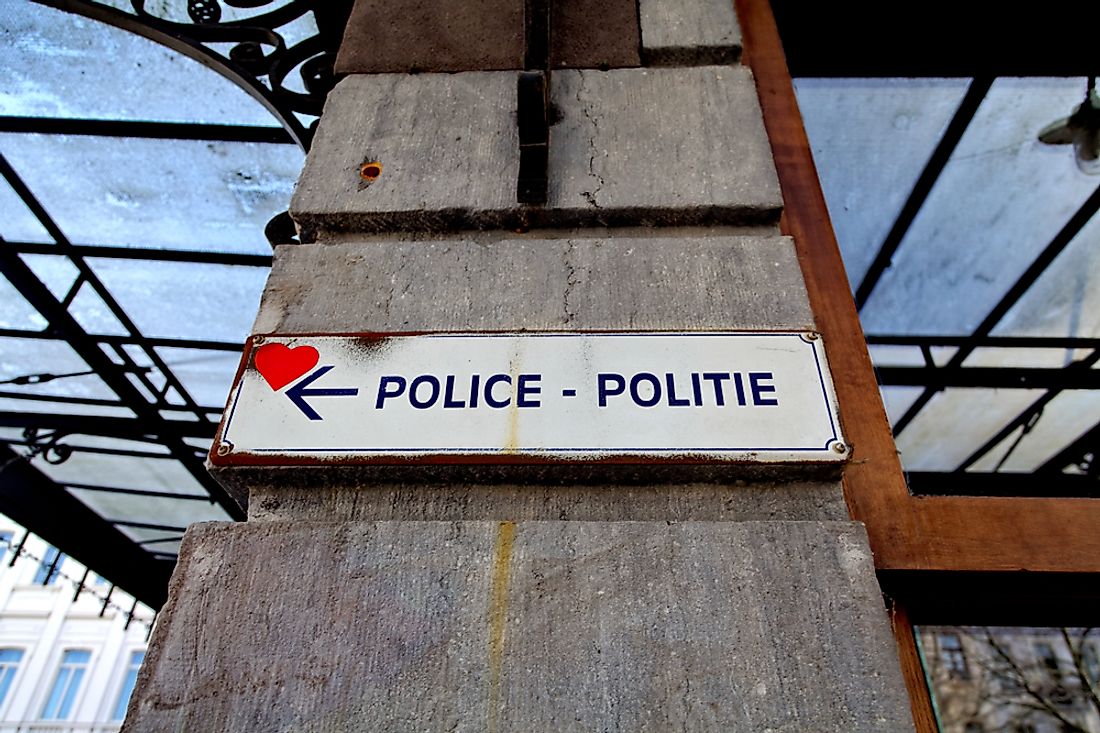What Languages Are Spoken In Belgium?

The residents of Belgium enjoy the freedom of language in their private lives. The country does have 3 languages that are typically spoken in public affairs: French, German, and Dutch. While the Constitution does not explicitly name these languages as official, it does state that Belgium has 4 linguistic areas: the French-speaking, the German-speaking, the Dutch-speaking, and the bilingual capital of Brussels.
The Flemish Region, Flemish Community, and the Capital Region all speak Dutch as their official language, making it the most widely spoken language in the country. This is followed by French, which is spoken by the French Community, the region of Wallonia, and the Capital Region. It is the native language of 40% of the population. German is the least spoken official language; only 1% of the population speak it as their native language. It is used mainly by the German-speaking Community, which numbers 77,000.
Regional Languages Of Belgium
In addition to the official language, Belgium has a number of regional, or non-official, languages as well. A few of these are very closely related to French, although the French Community has recognized them as distinct languages. They are Walloon, Picard, Champenois, and Lorrain. Walloon is the traditional language of the southern regions of Belgium and was originally spoken by the Walloons, an ethnic community. Today, the older generation speaks this language; younger generation has not learned it fluently. Picard and Champenois are both spoken in the Wallonia region of the country and Lorrain in Gaume, located in the southeast.
Other regional languages are Germanic in nature. Low Dietsch, for example, is spoken in the northeast of the country in the Duchy of Limburg. This language is similar to the German spoken in the German-speaking Region. Luxembourgish in the eastern province of Luxembourg, although it has been largely replaced by Belgian French. It is still spoken in the Grand Duchy of Luxembourg. Yiddish is spoken by the Ashkenazi Jews, a population of around 20,000 in Antwerp. This community is one of the few left in the world that still speaks Yiddish as its primary language.
Foreign Languages Of Belgium
Belgium has also received immigrants from various countries over the last several decades. They have brought with them their customs as well as their languages, contributing to a changing landscape in the country. Some of the most common foreign languages include Berber, Arabic, Spanish, Italian, Portuguese, Turkish, Greek, Polish, and English. Of these, English is widely spoken.
Language Legislation In Belgium
This country has had ongoing debates about which languages should be used officially since 1830. The language legislation of Belgium has changed over the years. During the 1800’s, courts and government were conducted in French, the language of the upper class. This was a disadvantage for communities in the north that did not speak French. The Flemish movement began in an attempt to make the official language Dutch; it was somewhat successful in Flanders in 1873. In 1878, it was declared the public announcements in Brussels must be made in Dutch or both Dutch and French. Bilingual education was introduced in 1883. From 1921 to 1962, the country operated under the territoriality principle, which determined that the language spoken by government officials would be based on the region. Belgians who could not speak the language of the region would be unable to communicate with public officials. In 1962, this legislation was further clarified by defining the language to be used in each municipality. It further declared that if a minority speaking one of the official languages was living in a municipality of a different language, they would be able to request public services in their own language. In 1970, these language regions were established in the Constitution. Disputes over language continue today because the freedom of language extends only to the private home.
What Languages Are Spoken In Belgium?
| Rank | Language | First Language (% Of Population) | Second Language (% Of Population) |
|---|---|---|---|
| 1 | Dutch | ~55% | 13% |
| 2 | French | ~36% | ~45% |
| 3 | German | 0.4% | 22% |
| 4 | English | — | 55% |
| 5 | Spanish | — | 5% |
| 6 | Italian | 2% | 1% |
| 7 | Arabic | 3% | 1% |
| 8 | Turkish | 1% | — |











